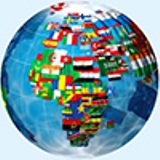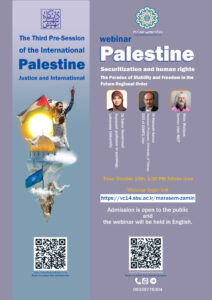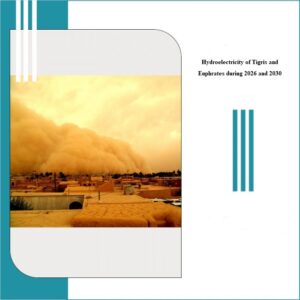Interview with Dr. Alireza Kamiri
Expert in Islamic Studies
Crises in their various dimensions have played a constant role in development and unity of a society. The same is true about the regional dimension and the Muslim world. They also have an important role in the process of disintegration. The following interview deals with the role of crises in integration and disintegration in the Muslim world.
Institute For Islamic World Future Studies (IIWFS): what role have crises had in integration and disintegration of the Muslim world?
Muslim world consists of 57 countries which have many similarities and differences. If we look at Muslim world as a whole identity, their fields of similarities are Islam, Qur’an and Islamic teachings. Although, since the formation of nation-states these countries have had some common ground, but the differences still exist. What is called as a crisis in the Muslim world refers to internal dispute in Islamic countries. Part of these disputes is ethnical and tribal and it is not necessarily influenced by Islam. Tribal identity plays a major role. And somehow, it makes hostility among Islamic countries. At the same time there are ideological and political differences among these countries which cause great struggles among them. The point is that it makes deep divisions within the Muslim world; therefore, the crisis is being increased. Partly, the division is due to internal disputes.
As The Supreme leader of Iran says “Today what threatens us in the Muslim world is division”. Part of the division is within the country and the other is related to cross- regional factors which Western countries and Israel has been the largest beneficiary during the past years. Therefore, you can find differences causing controversy among Islamic countries. As a matter of fact, it causes crisis both within and among Islamic countries. So that over a period of time , an eight year- old war is imposed on Iran’s new Islamic revolution government. In a particular length of time the war in Afghanistan is intensified and at some point intellectual disputes such as current events in the Muslim world lead to very serious crises in Syria, Lebanon, Yemen, Iraq, Libya and some Islamic countries. In turn, it causes an increasing hostility among the Islamic countries
IIWFS: If we categorize crises as economic, political, security crisis and etc., which type of disintegration will have a greater impact on Muslim world?
There is a kind of crisis which is called identity crisis. It is the most important one and stems from different interpretations of Islam in different parts of Muslim world. Some countries are in favor of Moderate Islam and some groups are following Salafi approaches. There are also some groups who looking for genuine Islam, thus a violent face of Islam is presented to the world. Identity crisis leads to many problems in the Muslim world. Islam is deemed as a violent approach; therefore, widespread and increasing conflicts can be seen in some parts of the Muslim world.
There are also economic crises. Iran –Saudi Arabia relations are worsening day by day. Oil and military issues have been a subject of considerable debate between Iran and Saudi Arabia in the last thirty years. And this crisis also affects other areas. There are many countries in other continents which have only economical debates .But whenever a crisis arises in the Muslim World It is not simply an economical problem .If we get to the root of problem, considerable political and ideological differences can be seen.
Today not only Islamic countries got involved in this crisis but also part of the West and some Islamic countries are affected by this unwanted war. To some extent it comes back to the question of politics and ideology.
In total, political identity and ideological differences are the root cause of the so–called economical problem in the Muslim world.
IIWFS: Apart From the intellectual and ideological crises what kind of crises can have a main role in disintegration of the Muslim world?
Some crisis are political- security type. Namely, they are influenced by ultra-regional factors. The USA allies in The Middle East and Islamic countries play a role on behalf of ultra- regional powers. They are the major cause of tensions in the global scope.
Today what is presented as the Islamic thought can be seen in Revolutionary, Neo-Ottomanism and Salafi version of Islam. Some of political movements are affected by cross- regional factors. These factors lead to tension in The Muslim world.
**Disclaimer: The contents of this article are of sole responsibility of the author(s). The Institute For Islamic World Future Studies will not be responsible for any inaccurate or incorrect statement in this article. The source and the author’s copyright must be displayed. For publication The Institute For Islamic World Future Studies articles in print or other forms including commercial internet sites, contact: editor@iiwfs.com





